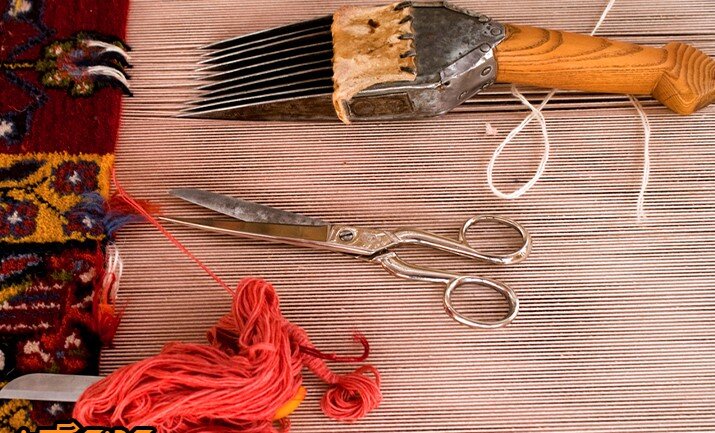Over 700 people trained as crafters in Ardabil in H1

TEHRAN – Over 700 people have been trained as crafters in the northwestern Ardabil province during the first half of the current Iranian calendar year 1401 (started March 21), a local tourism official has said.
The courses covered various fields such as pottery and ceramics, leatherwork, kilim, and cutting semi-precious stones, Mohammadreza Shayeqi explained on Monday.
Last December, local officials announced that the handicrafts sector has generated a total of 670 job opportunities across the province during the first nine months of the year.
They also added that 18 high-quality works by artisans in the province were awarded the National Seal of Excellence, which illustrates the expertise and power of the province’s artisans in this sector.
Sprawling on a high, windswept plateau, Ardabil is well-known for having lush natural beauties, hospitable people, and its silk and carpet trade tradition. It is also home to the UNESCO-registered Sheikh Safi al-Din Khanegah and Shrine Ensemble.
The province is very cold in winter and mild in summer, attracting thousands every year. The capital city of Ardabil is usually recorded as one of the coldest cities in the country in winter.
Wide-ranging handicrafts
With 14 entries, Iran ranks first globally for the number of cities and villages registered by the World Crafts Council, as China with seven entries, Chile with four, and India with three ones come next. For instance, Shiraz is named a “world city of [diverse] handicrafts”, Malayer is a global hub for woodcarving and carved-wood furniture, while Zanjan has gained the title of a “world city of filigree”.
In addition, the ancient city of Shiraz has been chosen to host the 39th General Assembly of the World Crafts Council-Asia Pacific Region (WCC-APR) in May 2023. Shiraz has a remarkable amount of handicraft pioneers. With an average age of 70, some of these pioneers are still active at their workshops. The occupational records of about 100 pioneers are collected and are annually praised by the custodians of the WCC General Office.
Available data compiled by the Ministry of Cultural Heritage, Tourism, and Handicrafts suggests the value of Iran’s handicrafts exports stood at $120 million during the first eleven months of the Iranian calendar year 1399 (March 20, 2020 – February 18, 2021), Mehr reported. The country’s handicrafts exports slumped during the mentioned months in comparison to the same period last a year earlier due to the damage the coronavirus pandemic has inflicted on global trade.
The Islamic Republic exported $427 million worth of handicrafts during the first eleven months of the calendar year 1398. Of the figure, some $190 million was earned via suitcase trade (allowed for customs-free and tax-free transfer) through 20 provinces, according to data compiled by the Ministry of Cultural Heritage, Tourism and Handicrafts. Ceramics, pottery vessels, handwoven cloths as well as personal ornamentations with precious and semi-precious gemstones are traditionally exported to Iraq, Afghanistan, Germany, the U.S., the UK, and other countries.
ABU/MG
